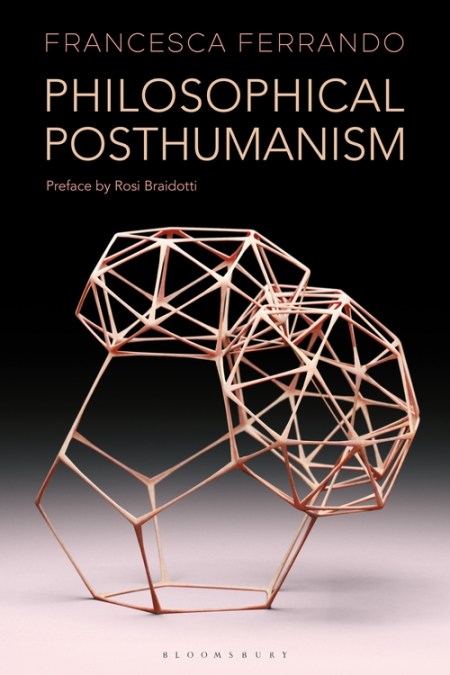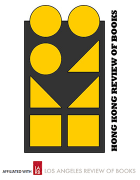Paul Clinton Corrigan reviews Francesca Ferrando’s important intervention in the debates encircling the notion of Posthumanism.
Francesca Ferrando, Philosophical Posthumanism (Bloomsbury Academic, 2020). 271pp.
At the start of Philosophical Posthumanism, Francesca Ferrando takes a bird’s-eye view of posthumanism, which she names “the philosophy of our times.” From this vantage point, high above the rainforest canopy of posthumanism, she at first surveys the breadth of her project through a number of questions. These questions serve as trail markers for the oftentimes complex discourse which takes place underneath that canopy. In the first section, her overarching question is “What is Philosophical Posthumanism?” This is followed in the next two sections by “Of Which ‘Human’ is the Posthuman a ‘Post’?” and “Have Humans Always Been Posthuman?” In 190 pages and 30 chapters staked out by those three sectional questions (or, as she calls them, “suggestions”), Ferrando navigates the reader through interconnected discourse trails in a Socratic conversation while seeking to critically examine the branches and roots of her subject. Ferrando offers answers to those three questions by factoring them into more specific questions in order to compare, contrast, analyze, and disentangle the multiplicity of sources of her subject. Concurrently, she synthesizes the material brick-by-brick into an emerging and widely embracing Bildung on philosophical posthumanism.
What is Philosophical Posthumanism?
In her first section, Ferrando begins to map out a genealogy of philosophical posthumanism as an ethical, meditative, post-anthropocentric, and onto-epistemological approach. In discussing the “posthuman,” she also reconnoiters some overlapping terrain around transhumanism, antihumanism, and critical and cultural posthumanism. The feminist method of situating the self is central to the epistemology of philosophical posthumanism, she explains. Philosophical posthumanism is post-anthropocentric in its recognition that “Humans are not the most important thing in the Universe.” Challenging amplifications of human centrality is just one instance of her critique of the Enlightenment, a period which Ferrando takes as more important in the development of the modern West than the Renaissance. Although Ferrando says that philosophical posthumanism is post-dualist, it could be also said generally to be anti-essentialist, in the sense that it does “support the ends of any external Truths imposed upon the individual,” and she offers interesting readings of Foucault and Nietzsche in explaining how and why this is possible.
Of Which “Human” is the Posthuman a “Post”?

In her second section, Ferrando develops the theme of “humanizing.” To start, she again turns to feminist theorists, especially de Beauvoir and Butler and their ideas of “gender” as a verb: that is, gender as the actions in a process and in a repeated performance. From here, it is a step away to point out that “human” can also be seen as a verb: that is, humanizing is also a process. Ferrando illuminates how, historically, an anthropocentric episteme, grounded especially in the Enlightenment, has instead emphasized a kind of Cartesian dualism, with “culture” that which makes us human: human, that is, as a noun and implying an essentialist, atemporal, and independent ontological status rather than actions in a shifting process. Historically, Ferrando shows how such a dualism has also been used to denigrate some as sub-human, as they were seen to lack “culture” or other classification features of the privileged group, through a process of “performative rejections.” Her discussion of Linnaeus’s tenth edition of Systema Naturae is especially eye-popping in reflecting the “social exclusions of his time.” The “Eurocentric partiality” of his taxonomy classifies Europeans as “sanguine,” but Africans as “indolent” and Indian-Americans as “obstinate,” and so on. Even the term “Mammalia,” which Ferrando points out was coined by Linnaeus, was grounded not in science, but in political considerations related to the socioeconomics of breastfeeding.
Have Humans Always Been Posthuman?
In the third section of her book, Ferrando takes on some of the contemporary developments related to posthumanism. She discusses the Gaia hypothesis, or the earth as a living organism, which is critiqued as “geo-centered,” “holistic,” and “based on a social-constructivist method.” Next, she turns to artificial life, critiqued as a pseudo-symbolic shift which is neither evolutionary nor critical in the sense that it challenges hierarchical structures. Following are discussions of genetic discrimination; the challenges posed by differences in national laws regarding human enhancement based on artificially selected DNA sequences for humans; and cognitive anthropocentrism, or the notion that humans possess cognitive superiority over other species. She discusses new materialisms (matter does matter) and the similarities and differences between object-oriented ontology and philosophical posthumanism (the former still assumes a “neutral and generalized human subject,” but both reject a Cartesian mind/body dualism and share a common “post-anthropocentric sensitivity”).
At the end of the third section, Ferrando discusses the multiverse hypothesis, the “ultimate decentralization of the human and the final deconstruction on any strict dualisms.” By this point, Ferrando has already taken us from a bird’s-eye view of the canopy of the posthumanism rainforest, down through the branches, then on a tour of the interconnecting discourse trails below, and finally into the roots, or, more precisely, the “continually growing horizontal underground stems” known as rhizomes. For, at this point, she turns to Deleuze and Guattari, acknowledging their notion of the rhizome as “an important antecedent for a posthuman approach to the multiverse.” She notes, however, that whereas rhizomes do not support the existence of a structure, a “posthuman multiverse does not necessarily exclude the co-presence of a structure.”
Concluding Celebration
By her final chapter, “Concluding Celebration,” Ferrando can subsequently and credibly claim posthumanism as “an emergent philosophical approach which is contributing to a radical revision of social norms and existential habits.” Reading Ferrando’s book while isolated during the Covid-19 pandemic, during a year of media reports of endangered democratic institutions, raging wildfires, and powerful hurricanes worsened by Anthropocene climate change, and demands for racial and economic equality, the time for a book as comprehensive yet concise as hers to begin to explore such an approach seems more important than ever.
Paul Clinton Corrigan lives in Hong Kong. He has taught undergraduates and research students at the same university for more than 25 years, where he also provides faculty development. He has published in the areas of teaching, literature, and writing, and is an associate editor of Asian ESP Journal.
Please support the HKRB and look out for more essays, interviews and reviews by following our Facebook page and Twitter account.
